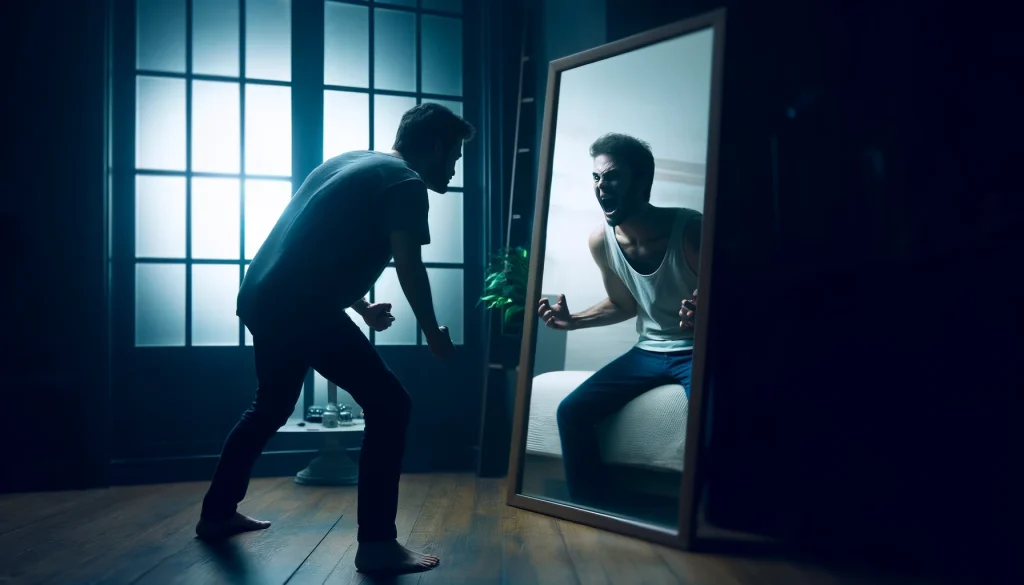
When trying to figure out if someone is addicted to pornography, it’s a bit like trying to understand why you can’t stop dipping into a bag of chips even when you’re not hungry. It’s something that starts as a choice but can evolve into a habit that’s hard to break, even if it starts to cause problems. So, how can you tell if you’re just engaging with porn as a casual viewer or if it’s becoming an addiction?
Let’s imagine your daily routine includes watching a bit of TV, spending time with friends, and maybe catching up on a hobby or two. Now, let’s say you also watch porn. In a situation where this is just one of many activities and doesn’t interfere with your life, it’s similar to any other form of entertainment or relaxation. However, the picture changes when this habit starts to take up more space in your life than you intended.
Think about John, who used to watch porn occasionally without it affecting other parts of his life. Over time, he begins to watch it more frequently. It starts to creep into his mind at work, he’s less interested in hanging out with friends, and slowly, his hobbies take a backseat. This scenario illustrates a key sign of potential addiction: when porn consumption starts to overshadow other aspects of life that were previously important or enjoyable.
Another scenario to consider involves how you react when you can’t access pornography. Suppose Lisa is used to watching porn at night, and one evening, her internet goes out. If she feels annoyed but shrugs it off and decides to read a book or catch up on sleep, it’s likely not an addiction. But if Lisa feels overwhelmingly frustrated, anxious, or restless because she can’t watch porn, these could be emotional signals suggesting a deeper dependency.
Emotional changes are significant indicators. Watching porn can start as a pleasurable activity, but if it begins to stir feelings of guilt, shame, or distress and these emotions are repeatedly ignored, this might suggest a problematic pattern. This is similar to feeling sick after eating too much junk food but continuing to eat it because it tastes good in the moment.
Frequency and time spent are also aspects to consider. For example, Mike decides every Saturday afternoon he’ll watch an hour of porn as a way to unwind. If it stays within that limit, it sounds like a controlled habit. However, if Mike starts to promise himself only an hour but ends up spending four hours, losing track of time regularly, this could be a red flag. It’s like planning to do a quick 30-minute workout and suddenly realising you’ve been at the gym for almost three hours.
Changes in your work and social life can be clear signs of a problem. For example, Sarah used to be very sociable and did well at her job. But as she watched more porn, she missed more deadlines, her work performance got worse, and she often chose to stay home rather than hang out with friends. If a habit starts affecting your responsibilities and social life, it might be turning into a compulsion instead of just a choice.
Lastly, consider the broader impact on your life. Does engaging with porn disturb your sleep patterns? Has it affected your sexual expectations or experiences with others? Does it influence your mood in significant ways? Consuming anything that significantly alters your routine or self-perception, similar to how a diet affects your physical health, is worth considering.
Understanding whether you’re addicted to porn doesn’t require a formal diagnosis from this discussion, but these scenarios and reflections can provide some personal insights. It’s about noticing changes in behaviour, the emotional weight of your habits, and their impact on various aspects of your life. Just like any other activity, it’s important to see how it fits into your life and whether it balances or throws off other parts.
Struggling with porn addiction? You’re not alone. At My Practice Counselling Melbourne, our accredited specialist Jonathan Riley can help you develop healthier coping mechanisms and build a more fulfilling relationship with intimacy.